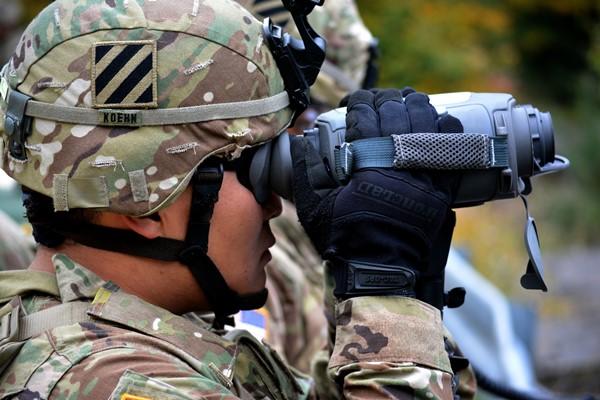With many soldiers expected to leave the ranks in coming years amid the continued downsizing of the Army will only add to the pressure on programs to ease the transition to civilian life, according to Army Human Resources officials.
"We see ourselves as a retention and a transition tool both," said Mark Brown, Human Resources director at Joint Base Lewis-McChord in Washington state.
Part of the transition program there is meant to help the soldier gauge whether he or she is financially prepared for separation, Brown said. "In many cases, the soldiers will realize that they're not ready and decide to stay in," he said.
Lt. Gen. Stephen Lanza, commander of I Corps at the base, recently told Military.com that the base has worked hard to partner with local businesses, schools and unions on transition and he now considers the transition programs there "the best in the Army" under the rubric, "Once a soldier, always a soldier."
Transition programs will be a focus of several panels at the Association of the U.S. Army's annual three-day exposition and conference beginning Oct. 12 at the Walter E. Washington Convention Center in Washington, D.C.
The Army and the other services stepped up their programs under the Defense Department's Transition Assistance Program as the wars in Afghanistan and Iraq grinded on and unemployment rates for veterans regularly exceeded civilian rates.
The Pentagon's job programs have also been bolstered by the Joining Forces initiative of First Lady Michelle Obama and Second Lady Dr. Jill Biden.
At a Veterans Initiative Summit Thursday sponsored by the private equity industry, Obama asked the audience of hedge fund managers and other high-powered executives to get more involved.
When Joining Forces started in 2011 with the goal of hiring or training 100,000 vets and military spouses, the unemployment rate for post-9/11 vets was more than 12 percent, she said.
"And today, just four years later, American businesses have hired or trained not just 100,000 veterans and military spouses, not just 200,000 or 500,000 -- no, folks like you across this country have hired or trained more than 850,000 veterans and military spouses," Obama said.
"And I think we can all agree that this is a breathtaking achievement," she said. "And ultimately, it happened for one simple reason -- because employers realized that veterans are some of the most skilled, motivated, resilient employees they could find." The result was that the unemployment rate for vets was now down to about five percent, she said.
At Joint Base Lewis-McChord, Human Resources director Brown said that the response from the surrounding community was such that "Usually the partner reaches out to us. We don't really have to solicit, they come to us."
"What we need to do is collaborate better instead of continuing to build new organizations," Brown said. "Literally every day, I learn about a new organization that's working in this space that I didn't know about the day before."
--Richard Sisk can be reached at Richard.Sisk@military.com.




























